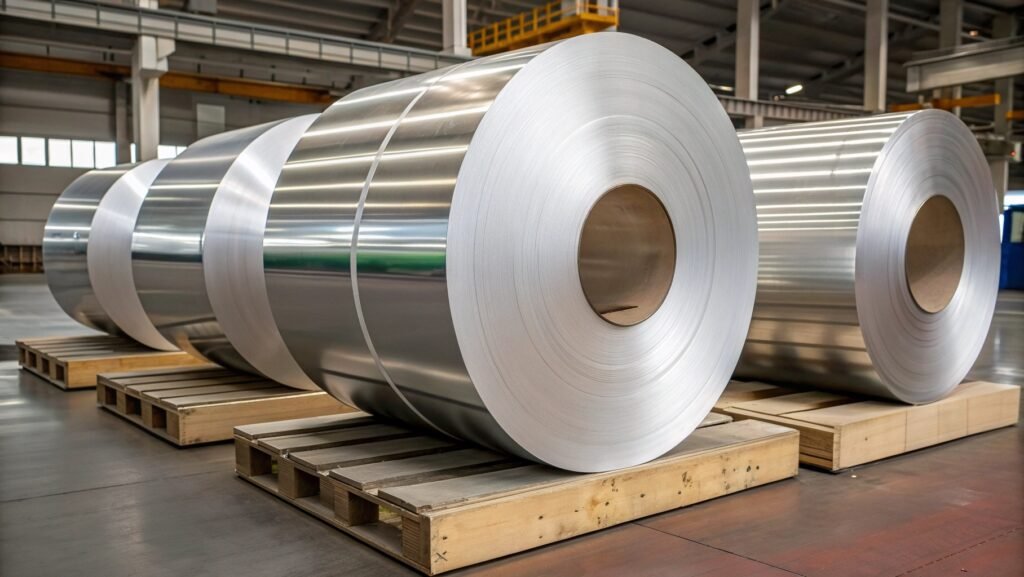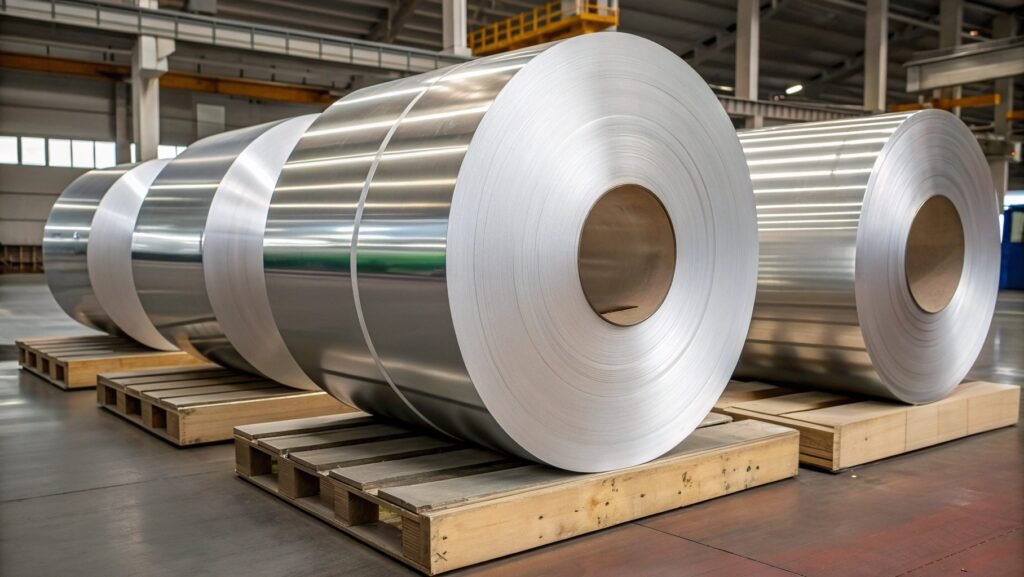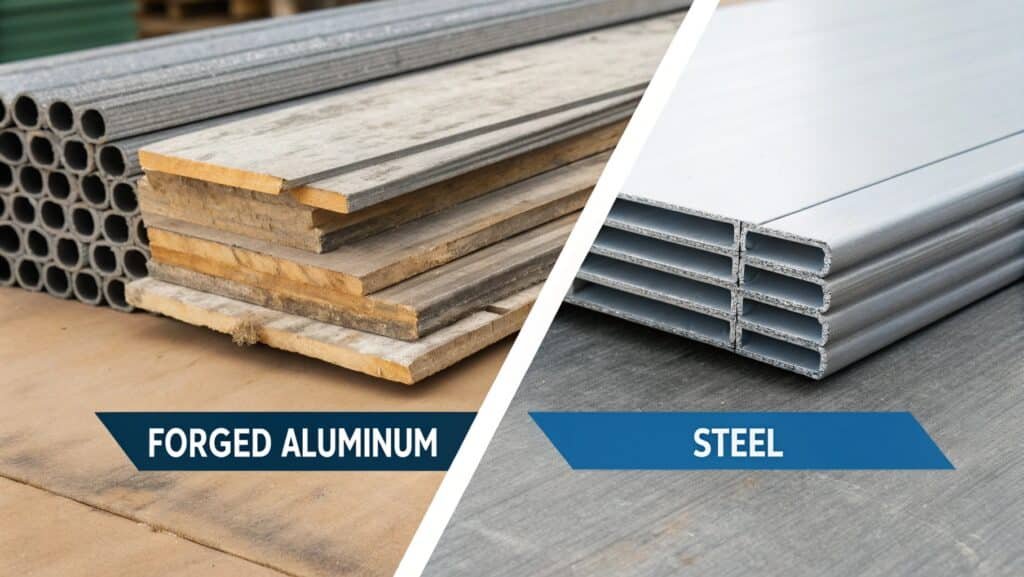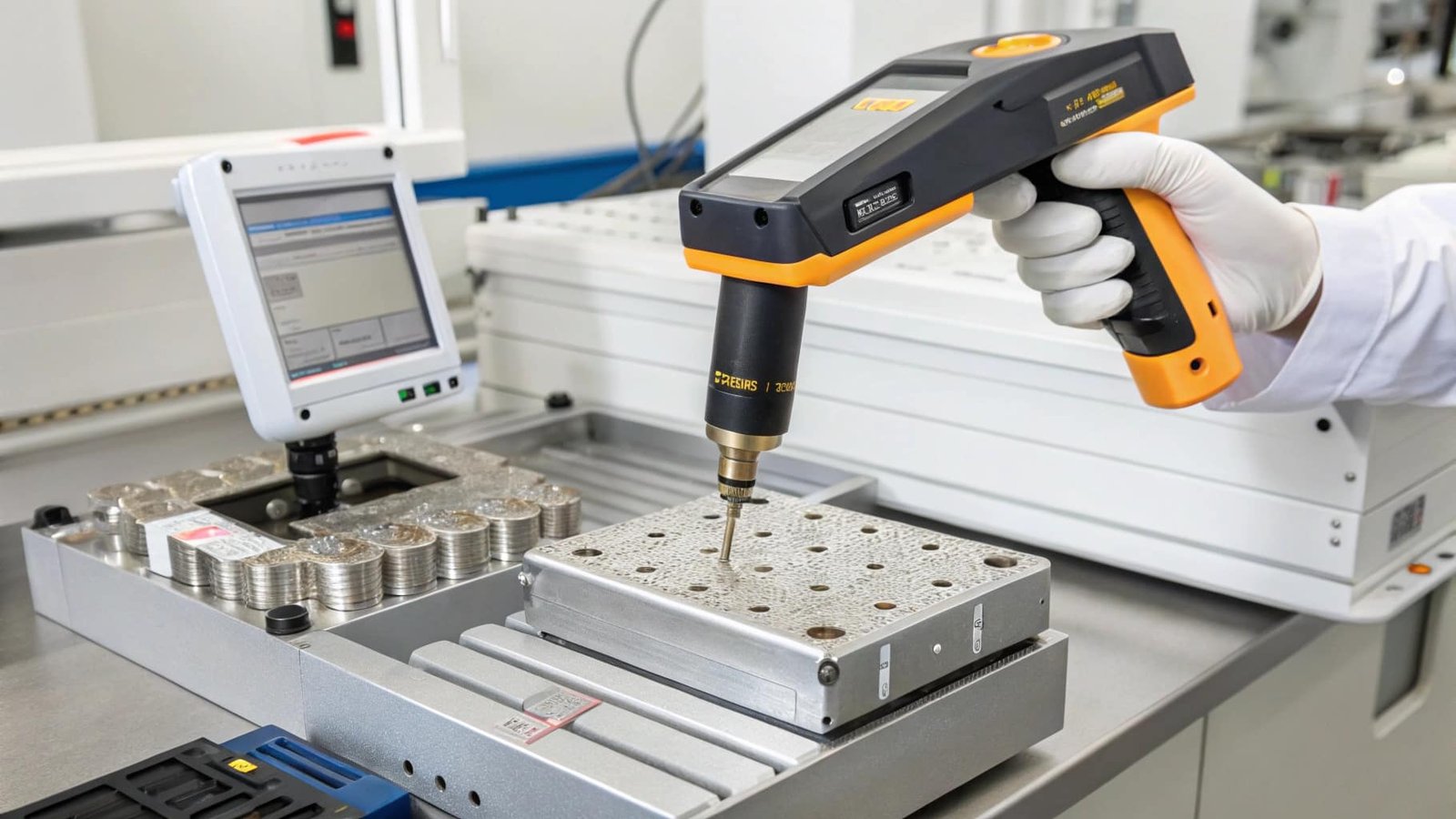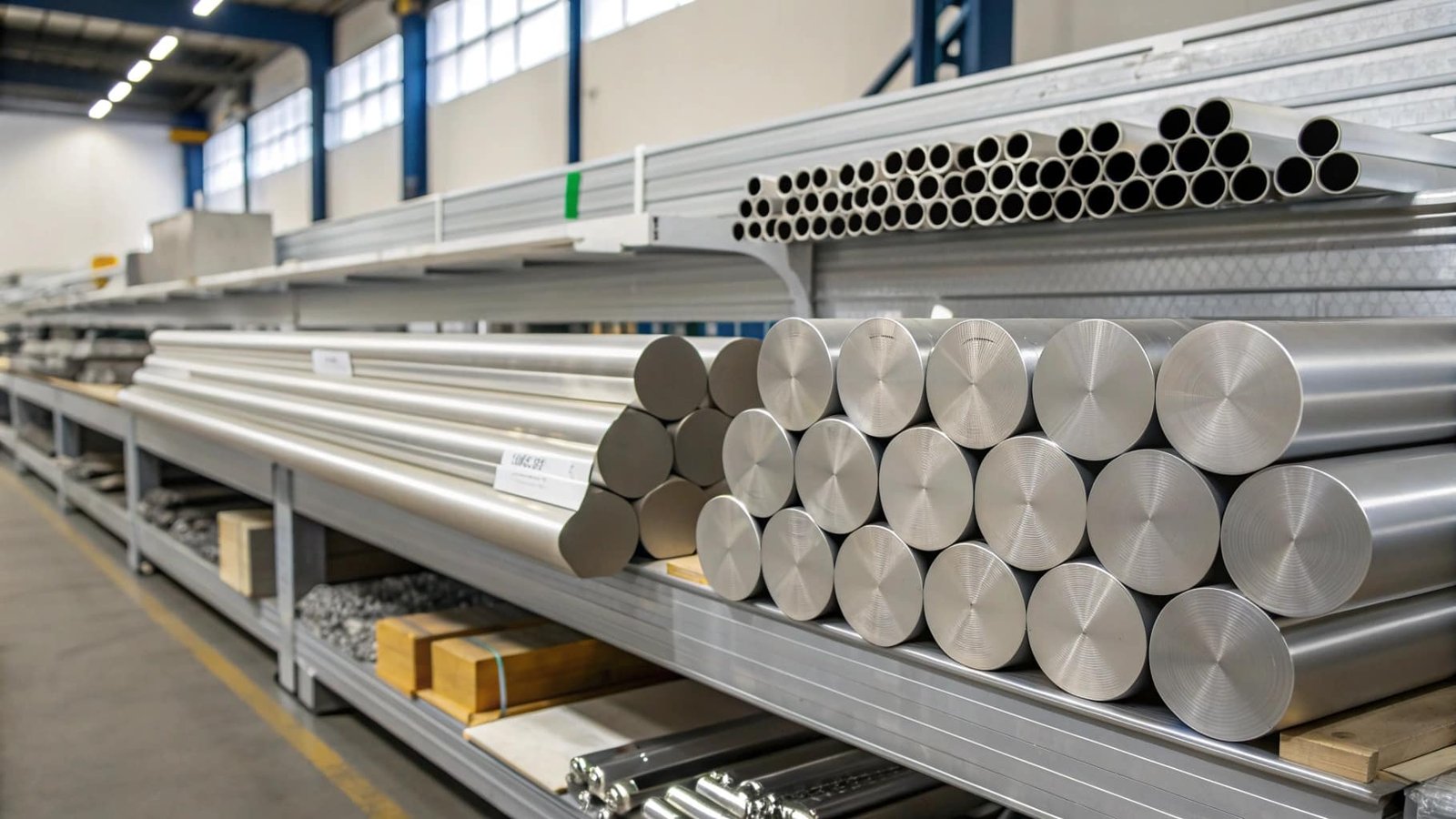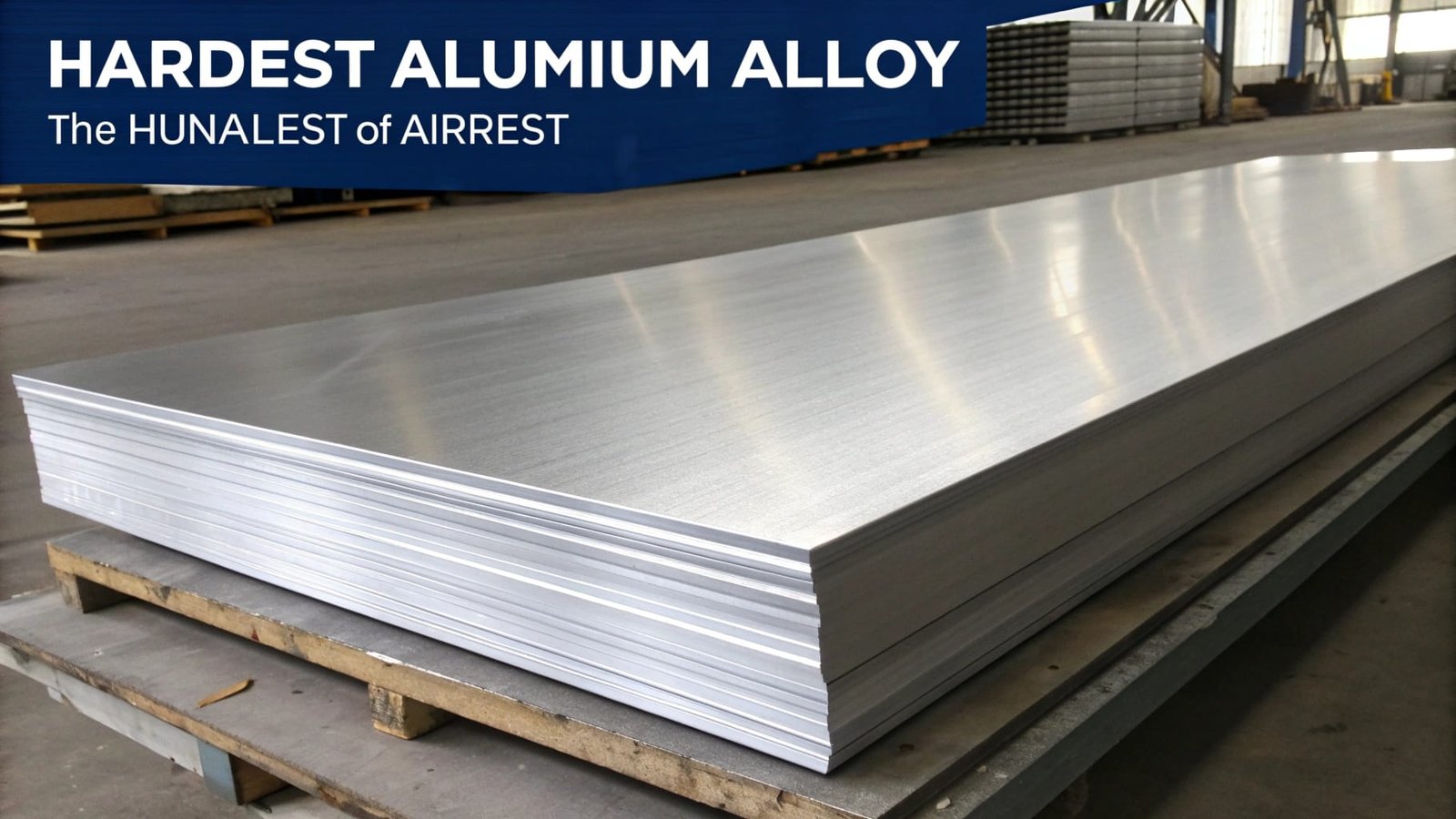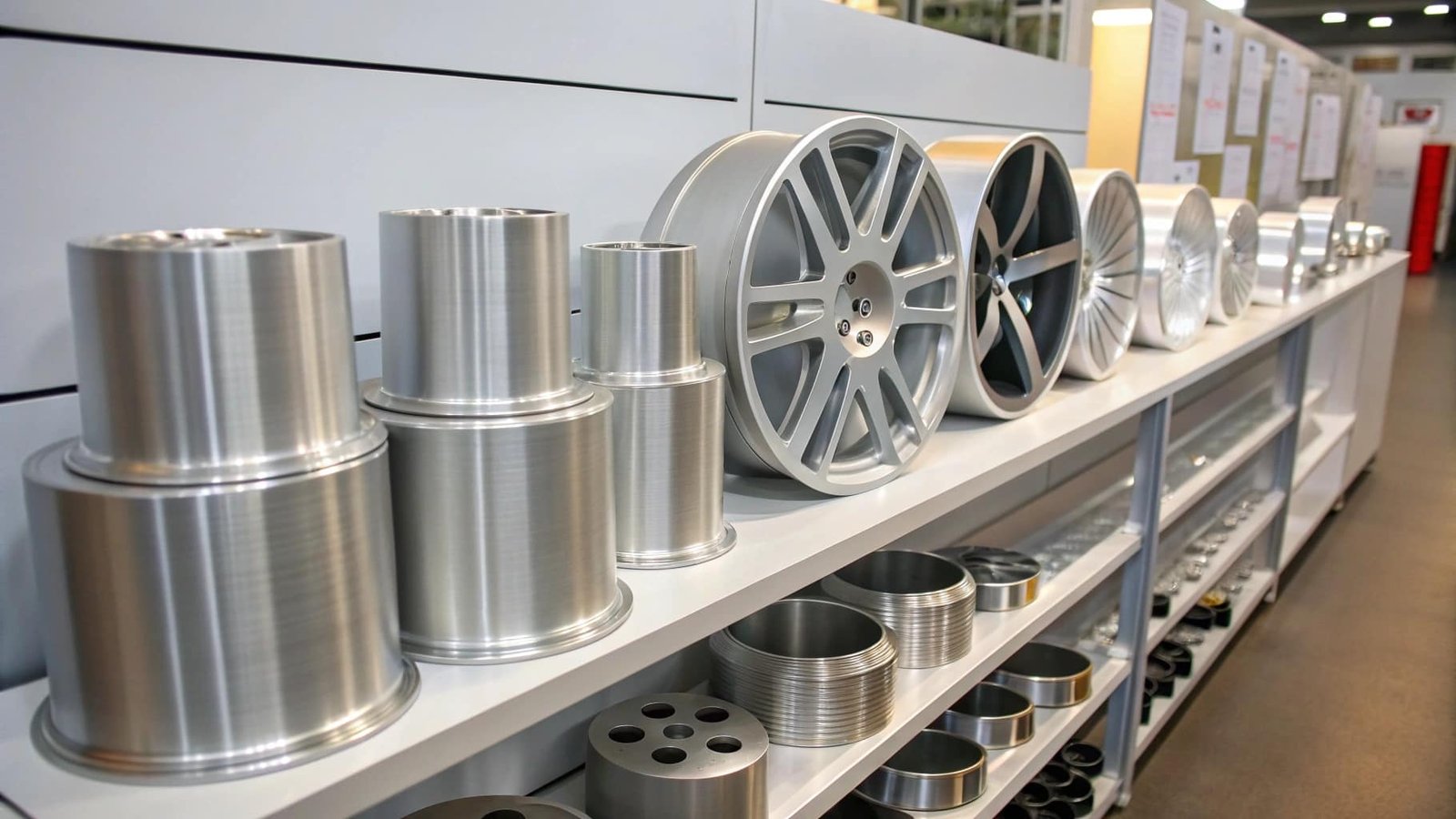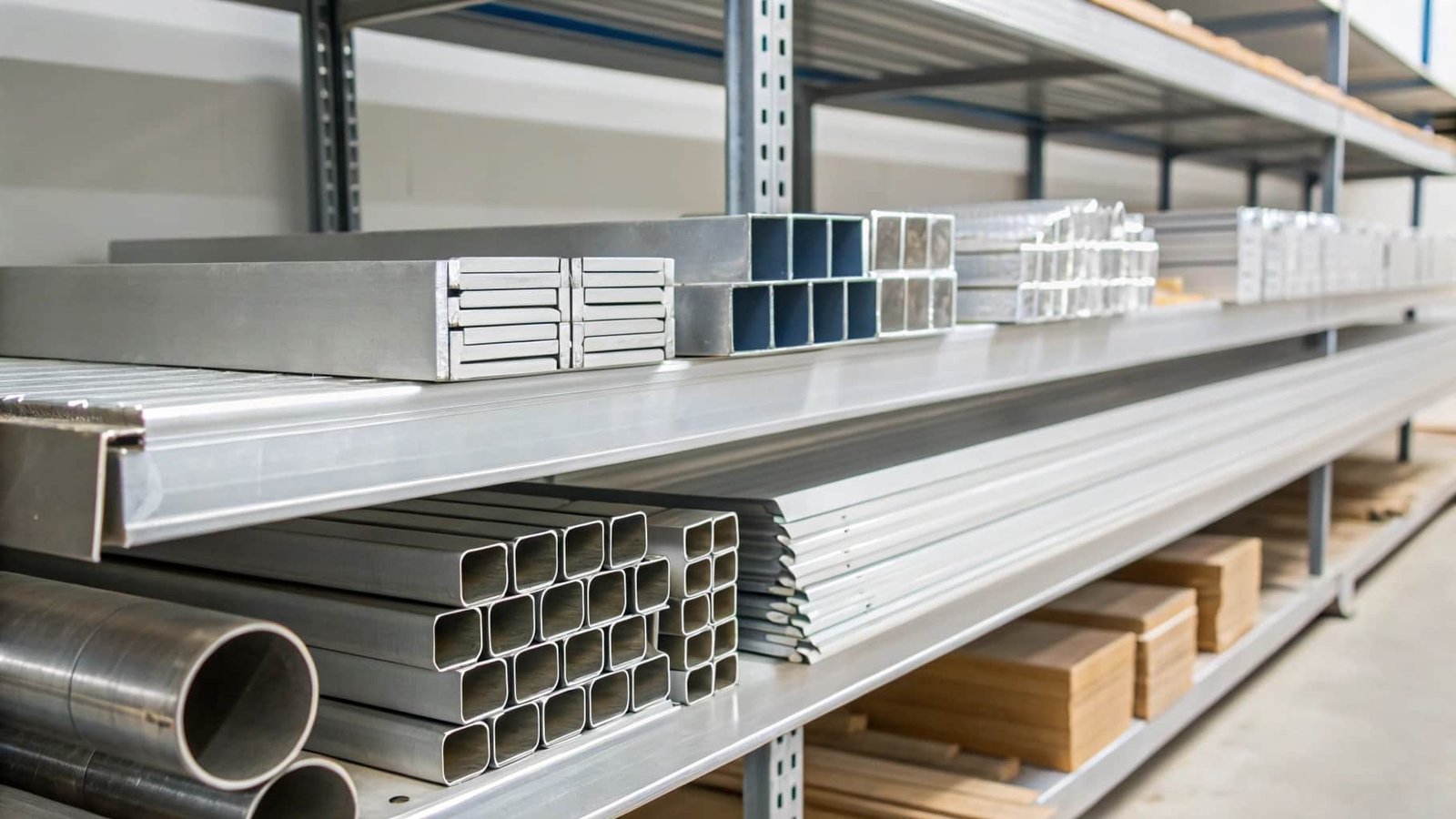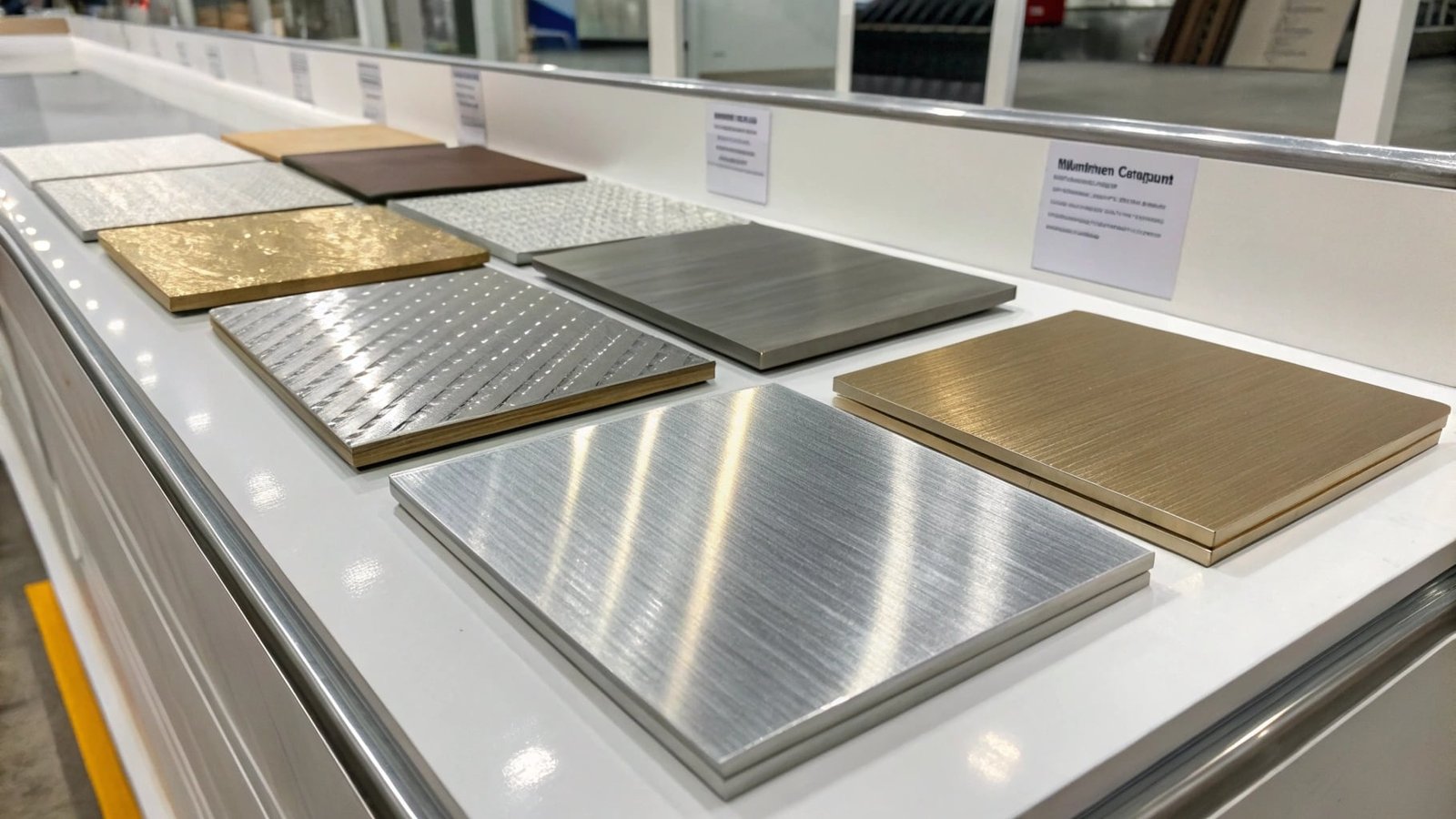Are you finding that standard aluminum round bars limit your project’s potential for fatigue life and structural reliability? Discover how SWA Forging’s custom-forged solutions offer a superior engineering approach.
When the demands for fatigue life and overall structural reliability exceed what standard aluminum round bars can provide, SWA Forging’s precision-forged aluminum rings and discs offer a superior, integrated solution with optimized material properties and grain flow for critical applications.
Many of our clients at SWA Forging initially consider standard aluminum round bars. These are fundamental building blocks in many engineering projects, serving as raw material for shafts, pins, fasteners, and various turned or machined components. They offer a good starting point for many applications due to their availability and ease of machining. However, the limitations become apparent when a component must withstand cyclic loading, high impact forces, or operate in environments that cause material fatigue. The inherent properties of a round bar, especially when machined into a more complex shape, can lead to stress concentrations at sharp corners or changes in cross-section. Furthermore, the internal grain structure of a bar is typically uniform and not aligned with the stresses a complex part might experience. This is precisely where SWA Forging’s expertise in custom forging comes into play. By transforming aluminum alloys1 into near-net-shape rings and discs under immense pressure, we refine the grain structure, align it with the component’s stress paths, and eliminate internal defects, thereby significantly enhancing fatigue life and overall structural reliability compared to components machined from standard round bars.
Is forged aluminum better than aluminum?
Forged aluminum is not a different material from aluminum; rather, it is aluminum that has been processed using a specific manufacturing technique to achieve superior properties.
Forged aluminum is superior to other forms of aluminum (like cast or machined from bar) in terms of mechanical properties because the forging process aligns the metal’s grain structure with the component’s shape. This refinement results in significantly higher strength, improved toughness, and superior fatigue resistance, making it ideal for critical applications where reliability is paramount.
When clients at SWA Forging discuss the benefits of forged aluminum, they are often comparing it to aluminum that has been cast or machined from a standard shape like a round bar or extrusion. It’s important to understand that forging is a process that enhances the base aluminum alloy’s characteristics. The core difference lies in how the metal’s internal grain structure behaves. In casting, the grains can be irregular and contain voids or porosity, which act as stress concentrators. Machining from a round bar aligns the grains generally along the length of the bar; when you machine this into a complex part, the grain flow might be cut across, creating a weaker point. Forging, on the other hand, involves shaping the metal under high pressure. This pressure aligns the grain flow with the contours of the final part, creating a continuous grain path that can better withstand stresses, especially under dynamic or fatigue loading. This inherent advantage makes forged aluminum components exceptionally robust and reliable, which is why we focus on this process for critical applications where performance is key.
Key advantages of forged aluminum:
- Refined Grain Structure: Aligned with stress paths for maximum strength.
- Reduced Internal Defects: Eliminates porosity and voids for better reliability.
- Higher Strength and Toughness: Superior resistance to deformation and fracture.
- Improved Fatigue Life: Significantly better performance under repeated stress.
- Dimensional Precision: Near-net-shape capabilities reduce machining requirements.
These attributes make forged aluminum the choice for demanding applications.
What is the best aluminum for structural welding?
The best aluminum alloys for structural welding are those that offer a good balance of strength, weldability2, and corrosion resistance3, with specific alloys being preferred for different types of structures.
For structural applications requiring good strength and excellent weldability, 6061 and 6082 are considered among the best aluminum alloys. These alloys offer a good combination of mechanical properties and are readily weldable using common methods like TIG or MIG welding, making them highly suitable for fabricating strong and durable structures.
Clients at SWA Forging often inquire about welding, either concerning our forged products or as part of a broader project context. When aluminum is used for structural purposes that involve welding, certain alloys perform much better than others. The 6000 series alloys, particularly 6061 and 6082, are highly regarded for their weldability. They maintain a good portion of their strength after welding, especially when appropriate filler materials and welding procedures are used. Alloy 6061 is very popular for its versatility, offering good strength, excellent corrosion resistance, and ease of fabrication, including welding. Alloy 6082 is known for having higher strength than 6061, especially in its T6 temper, and also exhibits good weldability, making it a strong contender for load-bearing structures. While stronger alloys like the 7000 series have excellent mechanical properties, they can be more challenging to weld without significant loss of strength in the heat-affected zone, often requiring specialized techniques. Therefore, for general structural work where welding is involved, alloys like 6061 and 6082 are typically the preferred choices.
Preferred aluminum alloys for structural welding:
- 6061: Widely used for its excellent all-around properties, including good weldability and strength.
- 6082: Offers higher strength than 6061, with good weldability and mechanical properties for structures.
- 5083: Highly weldable and known for its excellent corrosion resistance, often used in marine structures.
- 3003: Easily welded but has lower strength, suitable for less demanding applications.
The choice depends on the required strength, corrosion resistance, and welding complexity.
What is the best corrosion resistant aluminum?
The best corrosion-resistant aluminum alloys are typically those in the 5000 series, which have magnesium as their primary alloying element.
For superior corrosion resistance, especially in marine environments or against saltwater, alloys from the 5000 series, such as 5083 and 5052, are considered the best. These alloys have excellent resistance to general corrosion and stress corrosion cracking, making them ideal for applications exposed to harsh environmental conditions.
When clients at SWA Forging are working on projects exposed to harsh environments, particularly saltwater or aggressive chemicals, the question of corrosion resistance is paramount. Aluminum, in general, is known for its good corrosion resistance due to a passive oxide layer that forms on its surface. However, the specific alloying elements significantly impact how well it resists different types of corrosion. The 5000 series alloys, which contain magnesium, demonstrate outstanding resistance to corrosion, especially in marine settings. For example, 5083 is widely used in shipbuilding and offshore platforms because of its excellent seawater corrosion resistance and good weldability. Alloy 5052 also offers very good corrosion resistance, along with good formability, making it suitable for applications like fuel tanks or automotive body panels. While alloys like 6061 have good general corrosion resistance, they can be more susceptible to certain types of corrosion, such as galvanic corrosion when in contact with other metals in an electrolyte, or pitting corrosion, compared to the 5000 series. Therefore, for applications where the primary concern is longevity in corrosive environments, the 5000 series alloys are generally the top choice.
Top aluminum alloys for corrosion resistance:
- 5083: Excellent resistance to seawater and industrial environments.
- 5052: Very good corrosion resistance and formability, suitable for many corrosive conditions.
- 5005/5056: Also offer good corrosion resistance due to their magnesium content.
- 6061: Good general corrosion resistance, but less resistant to certain types than 5000 series.
The choice depends on the specific corrosive environment and the required mechanical properties.
Is forged aluminum stronger than steel?
Forged aluminum can be stronger than some steels in terms of strength-to-weight ratio, but comparing raw strength requires looking at specific alloys.
When comparing strength-to-weight ratio, high-strength forged aluminum alloys, such as 7075-T6, can be stronger than many types of steel. While certain high-performance steels may have higher absolute strength, forged aluminum often provides comparable or superior strength at a significantly lower density, making it the preferred choice for weight-sensitive applications.
A common question we get at SWA Forging is how our forged aluminum compares to steel, especially regarding strength. It’s not a simple yes or no answer because both aluminum alloys and steel alloys come in many different grades, each with varying strengths. However, when we talk about "strength," we often mean either absolute tensile strength or strength relative to weight. High-strength forged aluminum alloys, like the 7075 we frequently work with, can achieve tensile strengths upwards of 530 MPa. Some structural steels can reach strengths of 700 MPa or even higher. So, in terms of pure load-carrying capacity, some steels are stronger. But aluminum is about a third the density of steel. This means that a forged aluminum component can be designed to be just as strong as a steel component but weigh significantly less. For applications where weight is a critical factor, such as in aerospace, automotive, or high-performance machinery, forged aluminum’s superior strength-to-weight ratio often makes it the better choice, even if its absolute strength is not as high as the strongest steels.
Strength comparison factors:
- Absolute Strength: The maximum load a material can withstand. Some steels outperform aluminum.
- Strength-to-Weight Ratio: How much strength a material offers per unit of weight. Forged aluminum often excels here.
- Specific Alloys: Strength varies greatly between different aluminum alloys and steel grades.
- Application Needs: Weight-sensitive applications favor aluminum, while weight is less critical for others.
Forged aluminum offers an excellent balance of strength and lightness.
Conclusion
For applications demanding high fatigue life and structural reliability that standard aluminum round bars cannot achieve, SWA Forging’s custom-forged aluminum rings and discs provide a superior solution, engineered with optimized material properties.

